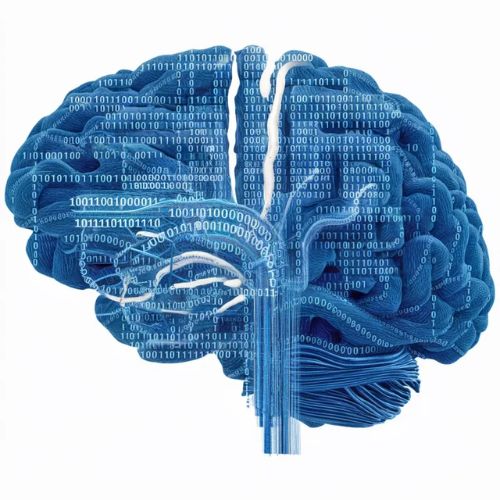A word that can send shivers down your spine and make you hold on to dear life is - Dementia.
Anyone who has had a dear one affected by it will know how debilitating it really is!
And my guess is that you or someone you know probably have it too!
In fact, a recent study by the National Institutes of Health (NIH) estimated that 7.4% of adults aged 60 and above, roughly 8.8 million Indians, are living with dementia.
This figure is significantly higher than previous estimates, meaning we need to find innovative solutions to tackle this crippling challenge in the country.
India's population is aging rapidly, and the number of people aged 60 and above projected to reach 319 million by 2050. This only means the number of dementia cases in the country is expected to rise significantly.
Despite huge investments and efforts in drug research, progress has been incredibly slow, with no breakthrough treatments on the horizon.
Artificial Intelligence (AI) solutions have the potential to make a significant impact by leveraging capabilities in data analysis, pattern recognition, and predictive modeling.
The Brain Bio-Digital Twin
NTT Data, a strategic consulting firm that specializes in leading-edge technology has collaborated with the National Center for Neurology and Psychiatry (NCNP) to work on a new technology called the Brain Bio-Digital Twin.
This technology gathers significant amounts of data on brain-related diseases and converts it into digital data. It then maps it virtually as a digital model of the brain.
With the data collected and digitized, AI and ML can then be used to study the brain and its functions.
Goals and Benefits
The primary goal of this research program is to create a digital version of a person's brain that can be studied instead of the actual patient.
The hope is that this will lead to fewer invasive tests for patients. This kind of technology could also prove to be cheaper, simpler, and better.
The prototype model is scheduled to come out this year.
This technology may also help with better prediction of medication side effects, and detect & prevent disease earlier.
Collaboration with NCNP
National Center for Neurology and Psychiatry (NCNP), a Tokyo-based organization that offers treatments and research on prevention and therapy for various disorders, is contributing important data to the Brain Bio Digital Twin.
This includes PET (Positron Emission Tomography) scans, bio-samples (blood, cerebrospinal fluid, tissue samples, genetic information), and medical interpretation of the results obtained through AI and ML processing.
Digital Avatars for Dementia Patients
NTT DATA work is also advancing research into combating dementia by using AI and deepfake technology to build digital avatars to communicate with dementia patients and stimulate them through dialogue.
AI for Detecting Cognitive Decline in Elderly Drivers
NTT DATA new AI system could prove to be invaluable in detecting cognitive decline among elderly drivers. The company has started working with Kokusai Motorcars on this project, scheduled to run until the end of June.
The system will analyze driving speed, acceleration and deceleration, among other driving data to assess whether drivers are experiencing a decline in cognitive brain activity, such as the ability to make quick judgments and pay attention.
Kokusai Motorcars will collect a large amount of driving data from several taxis whose drivers are 65 years old or older, which will be fed to NTT DATA to develop AI algorithms and verify the accuracy of driver judgments.
Future Applications
NTT DATA aims to launch the system as a cloud-based service within the next couple of years, targeting the taxi and logistics industries in particular, where the average age of drivers is steadily increasing. The system will also be made available to general drivers in the future, and NTT DATA is considering building a specific version for insurance companies to incorporate as a function of their insurance products.
With the prevalence of dementia in India significantly higher than previous estimates, and the country's rapidly aging population, AI solutions like those developed by NTT DATA have the potential to transform the detection, prevention, and management of dementia and cognitive decline in the country.
From the Brain Bio-Digital Twin to digital avatars and AI-powered driving analysis, these innovative approaches show us the powerful role AI can play in addressing one of India's most pressing healthcare challenges.
So, what do you think? Can AI really help combat cognitive decline and a scary demon like dementia?
Does this give you hope? Let us know.






